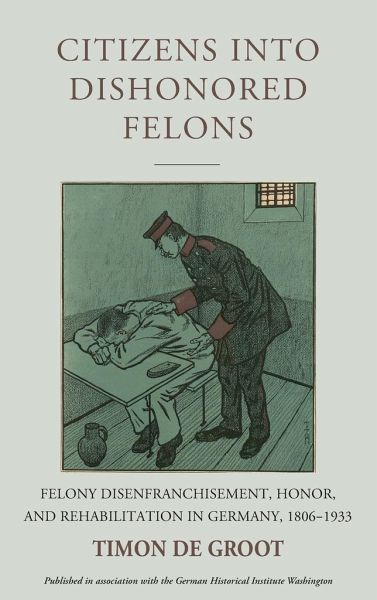
Citizens into Dishonored Felons
Felony Disenfranchisement, Honor, and Rehabilitation in Germany, 1806-1933

PAYBACK Punkte
66 °P sammeln!
Over the course of its history, the German Empire increasingly withheld basic rights-such as joining the army, holding public office, and even voting-as a form of legal punishment. Dishonored offenders were often stigmatized in both formal and informal ways, as their convictions shaped how they were treated in prisons, their position in the labour market, and their access to rehabilitative resources. With a focus on Imperial Germany's criminal policies and their afterlives in the Weimar era, Citizens into Dishonored Felons demonstrates how criminal punishment was never solely a disciplinary me...
Over the course of its history, the German Empire increasingly withheld basic rights-such as joining the army, holding public office, and even voting-as a form of legal punishment. Dishonored offenders were often stigmatized in both formal and informal ways, as their convictions shaped how they were treated in prisons, their position in the labour market, and their access to rehabilitative resources. With a focus on Imperial Germany's criminal policies and their afterlives in the Weimar era, Citizens into Dishonored Felons demonstrates how criminal punishment was never solely a disciplinary measure, but that it reflected a national moral compass that authorities used to dictate the rights to citizenship, honour and trust.












